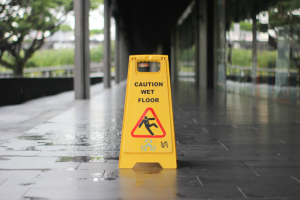Premises liability cases differ from general liability cases in specific ways pertaining to the nature of the damage or harm and how that type of liability is proven.
If you got hurt on someone else’s property, you may be wondering if it’s time to consider a general or premises liability claim. What is the difference between premises liability and general liability? Read more to learn about the key differences in these types of liability and the differences in how to prove them. A premises liability lawyer in Houston can help you determine for certain if your injury falls under the umbrella of premises liability.
What Is Premises Liability?
Premises liability refers to the responsibility that property owners have to reasonably and safely maintain their property to prevent injuries to any lawful visitors. Premises liability involves homeowners, business owners, and other private establishments and any injury that someone could get in such places when there is evidence that the damage was foreseeable and due to the owner’s negligence. It applies to unsafe conditions or defects in the property.
How Is It Different From General Liability?
General liability is a much broader term that includes or overlaps with premises liability. Basically, someone is liable when they are held legally responsible for something. Liability can be based on a party’s action, on a party’s lack of action, or on the action of anyone for whom the party is legally responsible. Individuals or businesses can be held liable for a variety of damages in a wide variety of contexts.
Premises liability cases only involve harm caused directly by unsafe conditions on someone else’s property, and they require that the visitor was not adequately warned of danger beforehand. If you have sustained harm this way and want to pursue a claim, premises liability lawyers in Houston can help you.
When Is Someone Liable?
In general and premises liability cases, the individual property or business owner has a duty of care to people – they assume a certain level of responsibility with any visitor. General or premises liability claims can be brought to property owners when they breach their duty of care by failing to maintain a reasonably safe environment. Premises liability differs from general liability in terms of duty of care and how to prove its breach.
In Cases of Premises Liability
Visitors to a property include invitees, licensees, and trespassers. Invitees are people who have the property owner’s permission to enter the property. Licensees are similar to invitees, but they come onto the property for their own purposes. Trespassers are uninvited people on the property, and in Texas, property owners don’t have a duty of care to them (except in specific cases involving children).
As the plaintiff, you must establish what type of visitor you were to proceed with a claim. Whenever there is a hazard, the owner has a responsibility to take immediate steps to prevent it or sufficiently warn lawful visitors of the hazard before entry so they can avoid harm. Common types of premises liability cases include slips and falls, insufficient building security, and swimming pool accidents.
In Cases of General Liability
The duty of care that a party owes in terms of general liability is much broader and encompasses times when someone gets injured or something gets damaged. General liability claims do not need to directly involve property and could include anything from someone causing an accident to someone intentionally harming or engaging in bad faith behavior.
How To Prove Liability
General Liability
Another salient difference between premises liability and general liability is in the steps needed to prove these types of claims. General liability cases do not necessarily need to include proof of prior knowledge of danger for the liable party.
Premises Liability

In contrast, premises liability claims must prove that the defendant (property owner) was aware or should have been aware of the unsafe property condition that created the injury. Furthermore, you must prove that the unsafe condition had foreseeable consequences. In addition, you must remember to distinguish whether you were a licensee or invitee because property owners often have less duty of care to licensees.
You must also prove that the owner did not warn you or take steps to fix the unsafe condition and that the condition was directly responsible for your injury. This part is sometimes a little trickier. For example, a well-placed sign inside a business lobby is a sufficient warning and prevents liability. And, homeowners are not necessarily held liable in the case of common household conditions that may not necessarily be inherently dangerous.
As you can see, premises liability cases differ from general liability cases in specific ways pertaining to the nature of the damage or harm and how that type of liability is proven. If you have any questions on how to proceed after you’ve been injured on someone else’s property, you should speak to an attorney who can help you with your next steps.


Join the conversation!